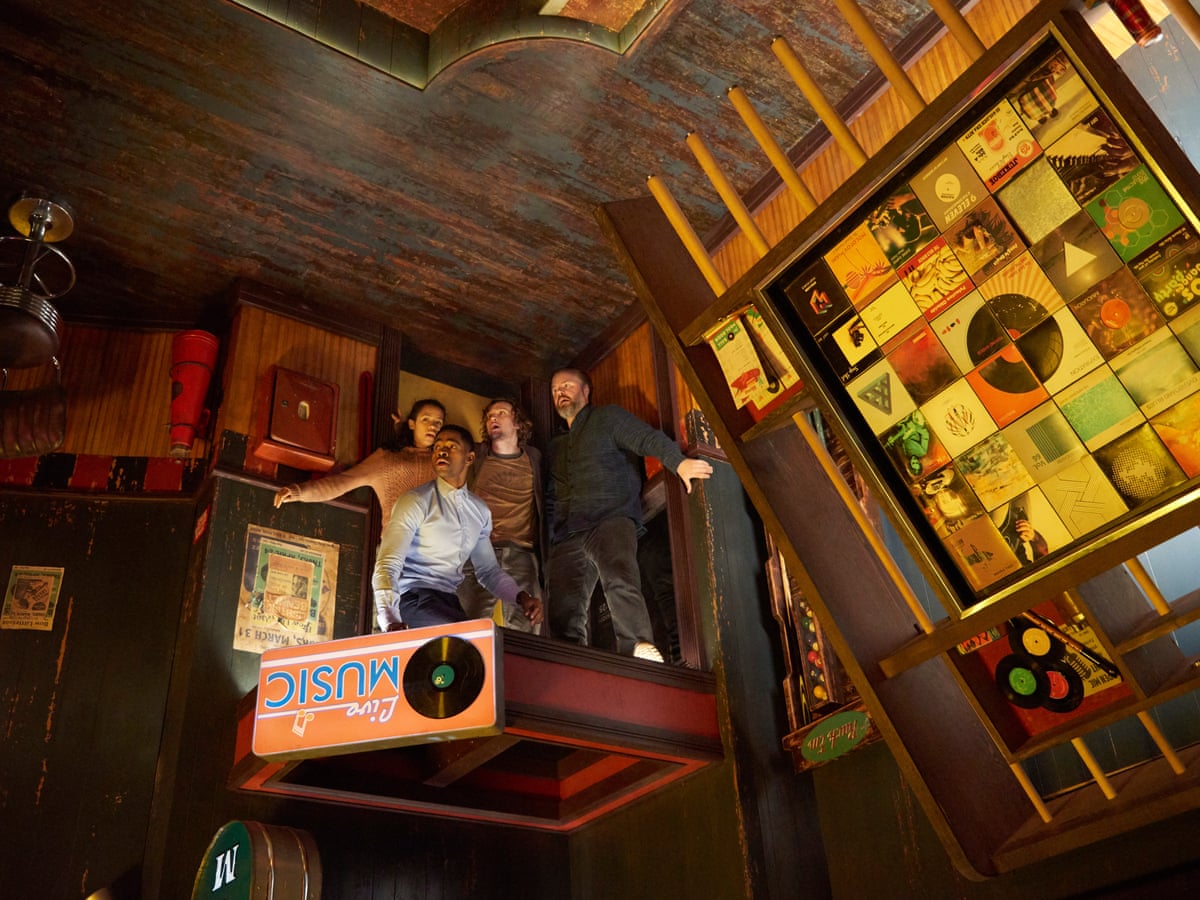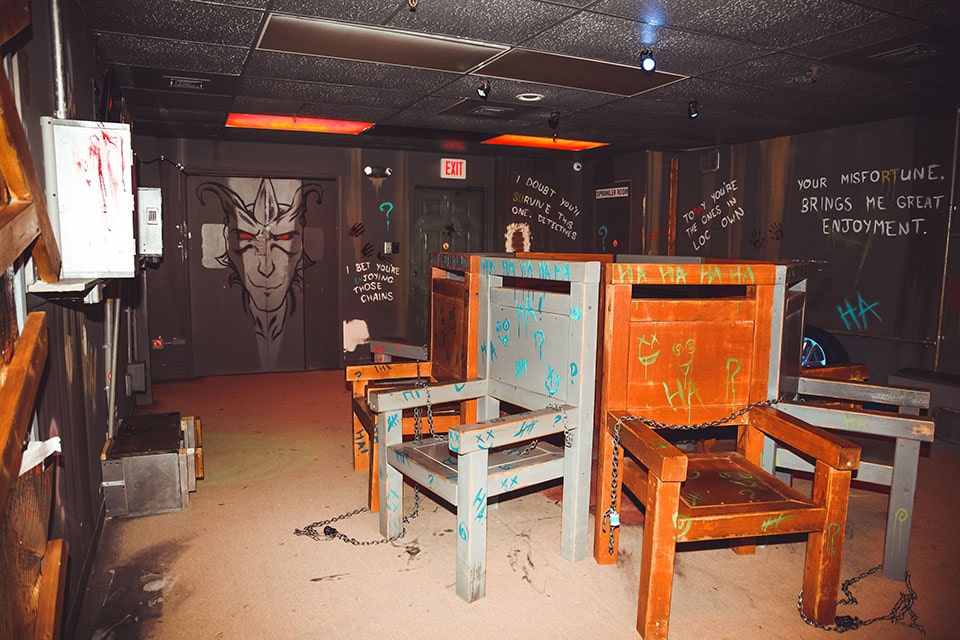Best Escape Room-- Examination Your Abilities and Resolve the Enigma
Best Escape Room-- Examination Your Abilities and Resolve the Enigma
Blog Article
Group Strategies: How to Team up Effectively in an Escape Area
Groups need to actively pay attention to each participant's insights, appoint functions that align with specific staminas, and preserve regular check-ins to make sure emphasis and protect against redundancy. By promoting a setting that values communication and adaptability, groups can considerably enhance their efficiency and success prices.
Establish Clear Communication

To assist in clear communication, it is crucial to assign a central factor of contact for info dissemination. This function involves summing up findings and recommended techniques to make certain every person remains on the exact same page. In addition, embracing an organized method to conversations can avoid disorderly exchanges. Brief, focused updates from each group member can maintain the team informed without frustrating them with details - best escape room.

Assign Duties Tactically
While clear interaction sets the structure for effective teamwork, appointing duties strategically guarantees that each employee's strengths are made use of successfully. In a getaway room circumstance, the time-sensitive and complicated nature of difficulties demands a well-organized approach to task delegation. By identifying and leveraging specific competencies, groups can optimize their analytic abilities and enhance general efficiency.
First, evaluate the one-of-a-kind skills and qualities of each participant. Someone with a keen eye for information could excel in discovering concealed things, while a logical thinker can be much better suited to fixing problems. It's just as important to have a leader who can manage progression, take care of the timeline, and make decisive calls when required. This function often requires solid organizational and social abilities.
Second, make sure that functions are versatile and versatile. As new difficulties emerge, the team must be able to pivot, reapportioning jobs as required. This adaptability aids preserve momentum and avoids bottlenecks that could take place as a result of inflexible function projects.
Ultimately, a tactical approach to duty task not just optimizes the staminas of each team participant but likewise cultivates a cohesive atmosphere, driving the group in the direction of a successful escape.
Use Diverse Abilities
Identifying and taking advantage of the diverse abilities within your team can dramatically boost your performance in a retreat space. Each staff member brings one-of-a-kind staminas to the table, and effectively leveraging these abilities can expedite problem-solving and improve overall effectiveness. A team member with solid logical skills might stand out at deciphering complicated codes or patterns, while an best site additional with keen observational capacities may rapidly detect surprise clues that others could overlook.
Efficient communication is crucial to making use of these diverse skills. Encourage staff member to articulate their insights and ideas without delay, guaranteeing that all possible solutions are considered. This inclusive method promotes a vibrant atmosphere where creative thinking and vital reasoning can flourish. Additionally, assigning tasks that align with each member's staminas can Going Here stop traffic jams and make certain that development is constant.
Moreover, variety in abilities typically equates to diversity in assuming designs, which is vital in a getaway room setup. While some difficulties might require logical thinking and precision, others might take advantage of creative and lateral reasoning. By acknowledging and leveraging this diversity, groups can attend to a wider series of obstacles better, thereby raising their chances of an effective retreat.
Manage Time Effectively

First, allocate first mins for a fast survey of the room. Identify noticeable problems and split jobs based upon staff member' strengths, ensuring that nobody is idle. Set internal time checkpoints to evaluate progression occasionally; for circumstances, objective to have half the challenges addressed by the mid-point of the game. This practice can aid maintain the group focused and stop time from escaping undetected.
Additionally, prevent passage vision. If a puzzle is taking also long, revolve team members or carry on to an additional visit here challenge, returning later with fresh perspectives. Communication is extremely important-- maintain everyone updated on addressed problems and remaining jobs to prevent repetitive efforts.
Lastly, use any tips or ideas sparingly however strategically - best escape room. Recognizing when to ask for assistance can conserve valuable time. By sticking to these time administration principles, groups can dramatically improve their opportunities of a successful and pleasurable getaway room experience
Debrief and Reflect
Reflection is a vital element of group growth and renovation in the context of getaway rooms. As soon as the difficulty is completed, whether efficiently or otherwise, it is crucial for the group to participate in an organized debriefing session. This process enables employee to assess their efficiency, recognize staminas, and pinpoint areas for renovation.
Start the debrief by reviewing what went well. Highlight specific circumstances of effective communication, problem-solving, and cooperation. Identifying these positive habits enhances them and motivates their repetition in future obstacles.
Talk about moments of complication, miscommunication, or inadequate approaches. Motivate an open and useful dialogue where team members can share their viewpoints without anxiety of criticism.
Conclusion
In verdict, successful cooperation in a getaway room is based upon clear interaction, critical role assignments, the effective utilization of diverse abilities, and skillful time monitoring. By creating a cohesive and flexible team setting, the likelihood of effectively solving challenges and attaining the objective of running away the room is substantially boosted.
Report this page